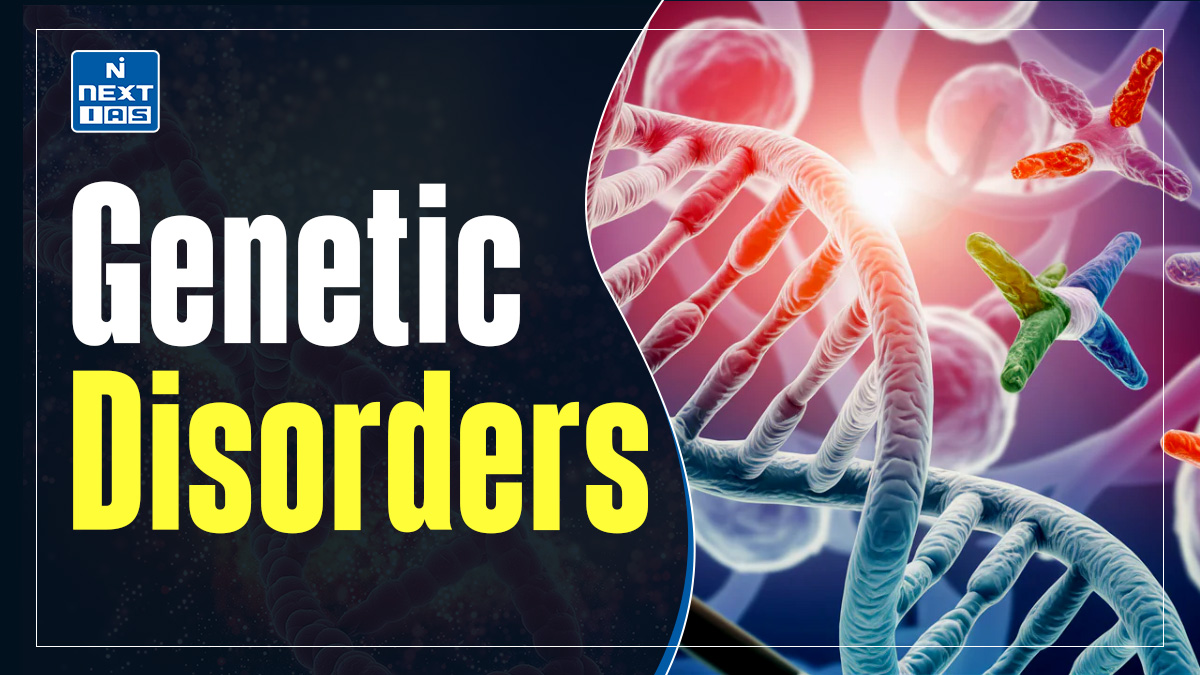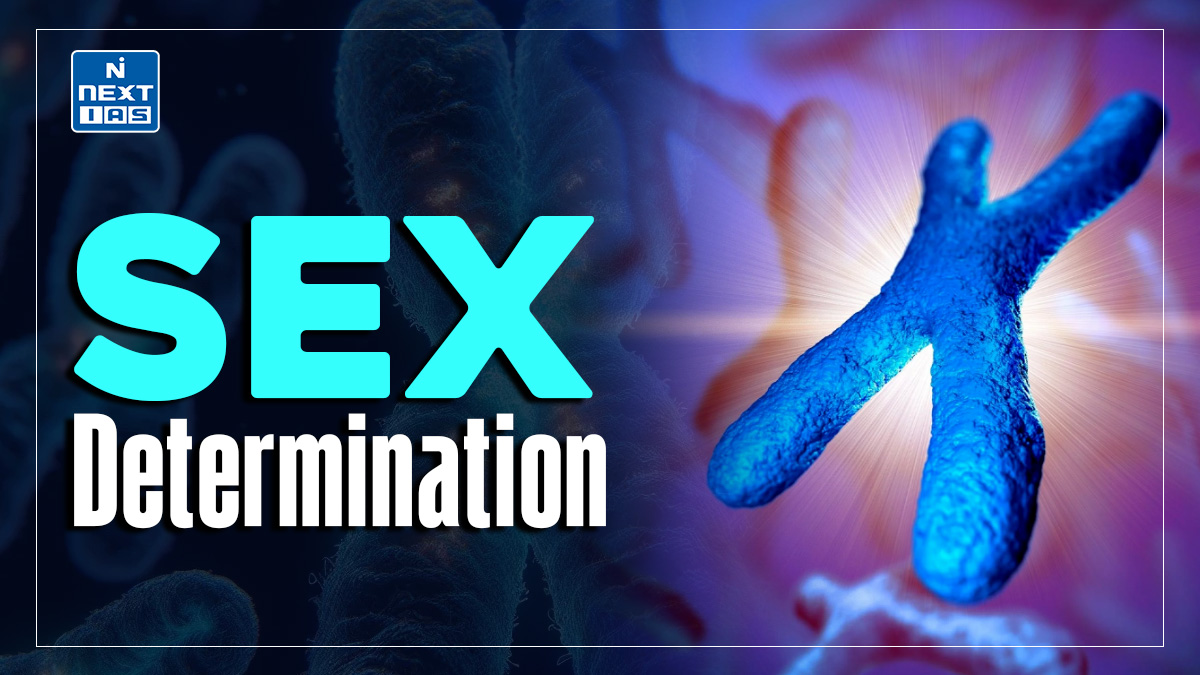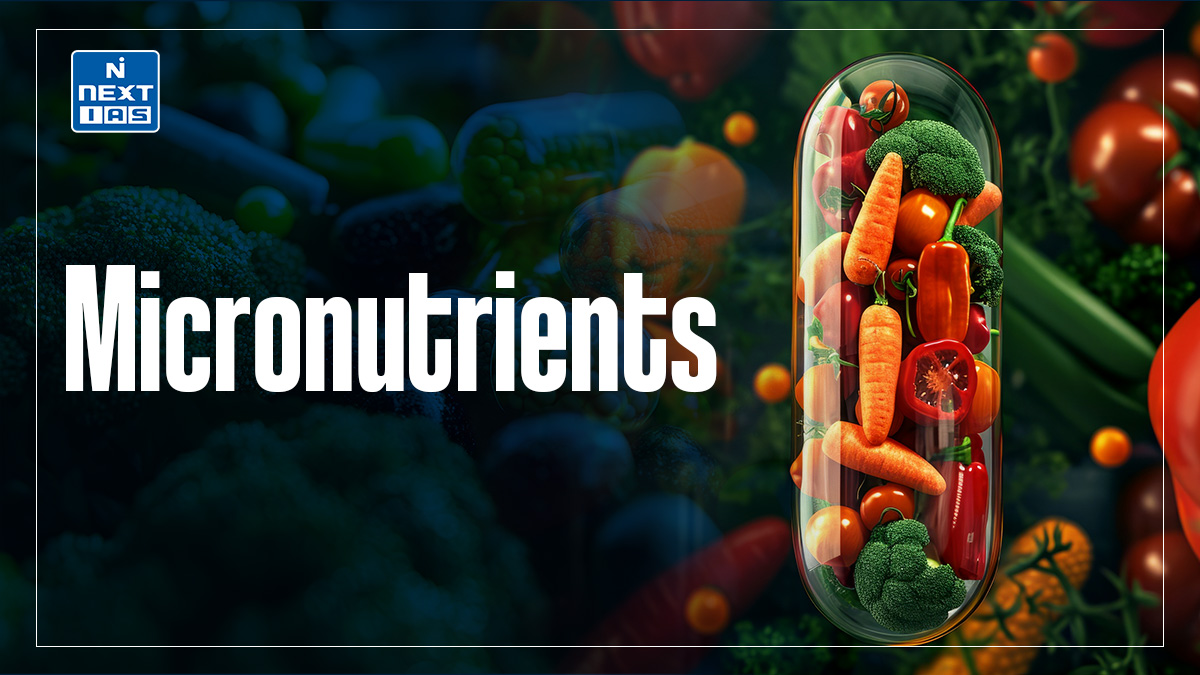
Vitamins are essential organic compounds required in small amounts for various bodily functions, including energy production, immunity, and cell repair. They are categorized into fat-soluble (A, D, E, K) and water-soluble (B-complex, C) types. A balanced diet ensures adequate vitamin intake, vital for maintaining health and preventing deficiencies.
What are Vitamins?
- Vitamins are organic compounds that the body requires in small amounts for essential physiological functions, such as growth, metabolism, and overall health. Unlike macronutrients like carbohydrates, proteins, and fats, vitamins do not provide energy but act as catalysts in various biochemical processes.
- They are classified into two main categories: fat-soluble vitamins (A, D, E, K), which are stored in the body’s fat tissues, and water-soluble vitamins (B-complex and C), which must be consumed regularly as they are not stored.
- Each vitamin has specific roles, such as supporting vision, immunity, and energy metabolism. Since the body cannot produce most vitamins, they must be obtained from food sources or supplements, emphasizing the importance of a balanced diet to prevent deficiencies.
Types of Vitamins
Vitamins are broadly categorized into two types based on their solubility:
Fat-Soluble Vitamins
These vitamins dissolve in fats and are stored in the body’s fat tissues and liver. They are consumed through dietary fats and do not need daily replenishment.
- Vitamin A: Supports vision, immune function, and skin health.
- Vitamin D: Aids calcium absorption and bone health.
- Vitamin E: Acts as an antioxidant, protecting cells from damage.
- Vitamin K: Essential for blood clotting and bone metabolism.
Water-Soluble Vitamins
These dissolve in water and are not stored in the body, requiring daily intake. Excess amounts are excreted through urine.
- Vitamin B-Complex: Includes B1 (Thiamine), B2 (Riboflavin), B3 (Niacin), B5 (Pantothenic acid), B6, B7 (Biotin), B9 (Folate), and B12, which aid energy production, metabolism, and red blood cell formation.
- Vitamin C: Boosts immunity, acts as an antioxidant, and supports skin and tissue repair.
A balanced diet ensures adequate intake of these essential vitamins.
Sources of Vitamins
Fat-Soluble Vitamins
- Vitamin A: Found in liver, fish oils, eggs, dairy products, and orange or yellow fruits and vegetables (e.g., carrots, sweet potatoes, mangoes).
- Vitamin D: Obtained from sunlight exposure, fatty fish (salmon, mackerel), egg yolks, and fortified foods (milk, cereals).
- Vitamin E: Present in nuts, seeds, vegetable oils (sunflower, safflower), spinach, and avocados.
- Vitamin K: Found in green leafy vegetables (kale, spinach), broccoli, and soybeans.
Water-Soluble Vitamins
- Vitamin B-Complex
- B1 (Thiamine): Whole grains, pork, nuts, and legumes.
- B2 (Riboflavin): Dairy products, eggs, and green leafy vegetables.
- B3 (Niacin): Meat, fish, whole grains, and peanuts.
- B5 (Pantothenic Acid): Meat, poultry, whole grains, and avocados.
- B6: Bananas, poultry, fish, and potatoes.
- B7 (Biotin): Eggs, nuts, and seeds.
- B9 (Folate): Leafy greens, citrus fruits, beans, and fortified cereals.
- B12: Meat, fish, dairy, and fortified plant-based products.
- Vitamin C: Found in citrus fruits (oranges, lemons), strawberries, bell peppers, and broccoli.
Consuming a variety of these foods ensures a sufficient intake of vitamins.
Functions of Vitamins
Fat-Soluble Vitamins
- Vitamin A
- Supports vision, particularly in low light.
- Promotes healthy skin and immune function.
- Aids reproduction and organ maintenance.
- Vitamin D
- Facilitates calcium and phosphorus absorption for strong bones and teeth.
- Supports immune system function.
- Vitamin E
- Acts as an antioxidant, protecting cells from oxidative damage.
- Supports skin health and immune function.
- Vitamin K
- Essential for blood clotting and wound healing.
- Aids in bone metabolism.
Water-Soluble Vitamins
- Vitamin B-Complex
- B1 (Thiamine): Assists in energy metabolism and nerve function.
- B2 (Riboflavin): Supports energy production and skin health.
- B3 (Niacin): Aids digestion, skin health, and cholesterol management.
- B5 (Pantothenic Acid): Crucial for synthesizing coenzymes and hormones.
- B6: Helps produce red blood cells and neurotransmitters.
- B7 (Biotin): Vital for metabolism of carbohydrates, fats, and proteins.
- B9 (Folate): Supports DNA synthesis and cell division, especially during pregnancy.
- B12: Essential for red blood cell formation and nervous system health.
- Vitamin C
- Enhances immune function and wound healing.
- Acts as an antioxidant and aids in collagen production.
Vitamins work together to maintain overall health and support vital bodily functions.
Recently Discovered Vitamins
While most vitamins have been known for many years, research in nutrition and biochemistry continues to reveal new insights into vitamins and their roles. Some of the more recent discoveries in the field of vitamins and related compounds include:
Vitamin K2 (Menaquinone)
- Discovery: Vitamin K2, a form of Vitamin K, was discovered after Vitamin K1, but its essential role in human health has become more apparent in recent decades.
- Function: Vitamin K2 is involved in bone health by helping to regulate calcium metabolism, promoting bone mineralization, and preventing arterial calcification. It also supports cardiovascular health and has been linked to a reduced risk of osteoporosis.
Vitamin B4 (Adenine)
- Discovery: Although Vitamin B4 was once considered an essential vitamin, it has since been reclassified as a non-essential compound because it is synthesized by the body. Adenine is a purine base that plays a role in DNA and RNA synthesis.
- Function: While no longer officially classified as a vitamin, adenine is crucial for nucleic acid metabolism and is part of the structure of DNA and RNA.
Vitamin B8 (Inositol)
- Discovery: Inositol, once thought to be a member of the B-vitamin complex, has recently been classified as a “conditionally essential” nutrient. It is found in several forms, the most important being myo-inositol.
- Function: Inositol is involved in cellular signaling, lipid metabolism, and neurotransmitter function, and has been linked to supporting mental health, particularly in conditions like anxiety and depression.
Vitamin P (Bioflavonoids)
- Discovery: Bioflavonoids, sometimes referred to as Vitamin P, were initially identified as important antioxidants and anti-inflammatory agents. While not technically classified as a vitamin, they contribute to overall health, especially in supporting vascular health.
- Function: Bioflavonoids, which include quercetin, rutin, and catechins, are involved in protecting blood vessels and enhancing the absorption of Vitamin C.
These newer discoveries highlight the complexity of human nutrition and the ongoing exploration of lesser-known compounds that may contribute to health and well-being.
Way Forward
The future of vitamin research involves better understanding their synergistic effects, discovering new essential compounds, and exploring their roles in disease prevention and aging. Advancements in personalized nutrition will allow for more tailored vitamin supplementation, addressing individual needs and improving health outcomes through precision medicine and diet optimization.
Conclusion
Vitamins are essential nutrients that play critical roles in maintaining health, supporting growth, and preventing diseases. A balanced intake of both fat-soluble and water-soluble vitamins is necessary for optimal bodily functions. Proper nutrition, through a varied diet, ensures sufficient vitamin levels for overall well-being and vitality.
GS - 3




